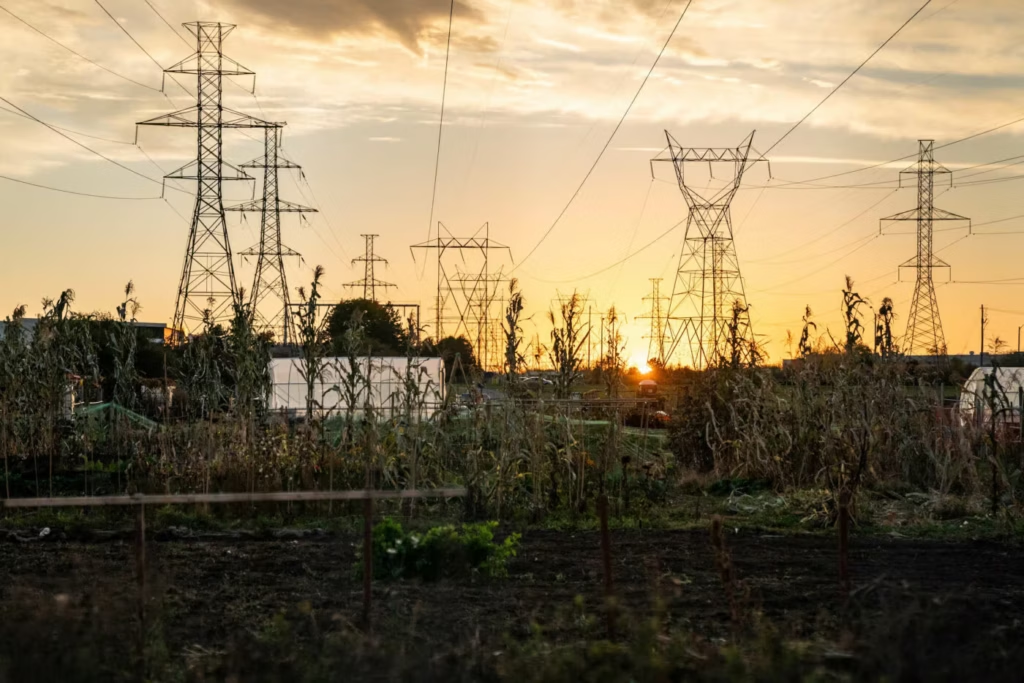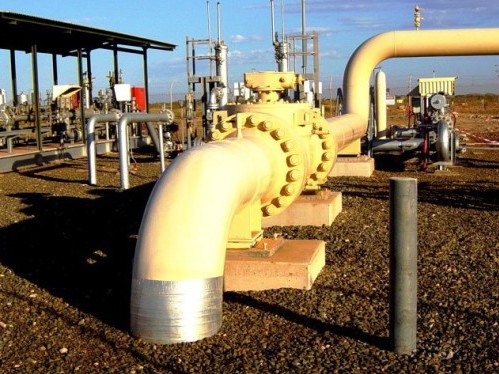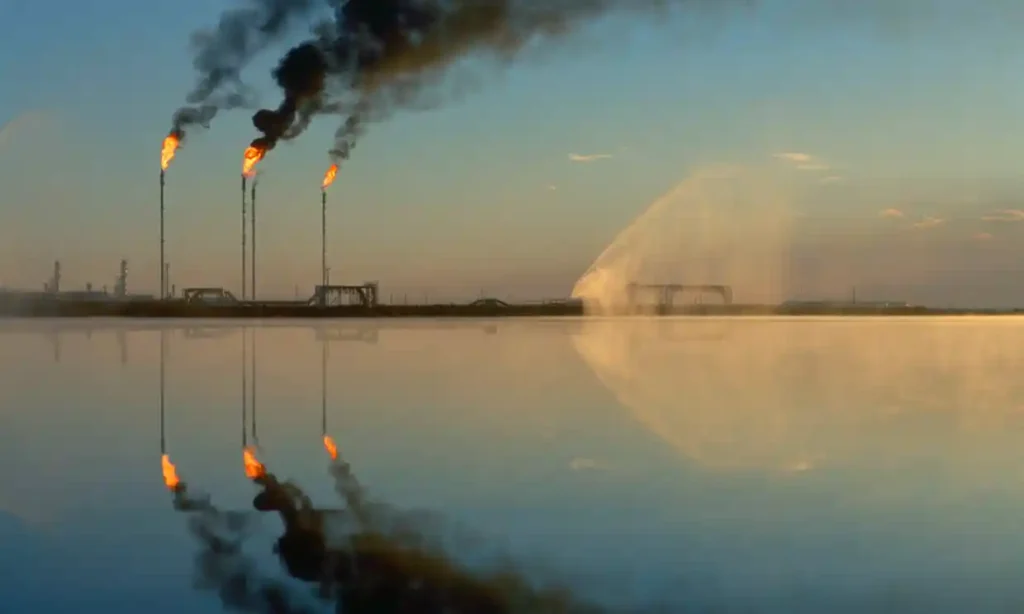Ontario didn’t inform the public about advice urging a shift away from natural gas

Dec. 13, 2024 – By Fatima Syed
The Doug Ford government commissioned an independent report for up to $1.5 million to identify pathways to net-zero emissions. Now The Narwhal has learned what it said
Ontario currently doesn’t have enough power to supply the projected 75 per cent rise in demand by 2050. In an effort to address this challenge, the Doug Ford government sought independent experts who advised it to phase out natural gas.
The Ontario government has pushed forward plans to boost natural gas generation to meet soaring energy demand, despite receiving expert advice to “plan a partial abandonment” of gas infrastructure by 2050.
Climate Groups Decry Move to Override Climate Positive Ontario Energy Board Decision
January 25, 2024 CAM
The Ontario Energy Board (OEB) has ended the subsidy for methane gas pipelines in new residential developments. The OEB is an arms length body that protects customers from utility price gouging. Minister of Energy Todd Smith says he will override this decision through legislation. 16 Climate groups, including Climate Action Muskoka, have responded to this threat to arbitrarily overturn a win-win-win situation for new homebuyers, for existing gas customers, and for reducing carbon pollution. Read the detailed letter to Energy Minister Todd Smith.
Letter to Minister Smith – v2.docx (climateactionmuskoka.org)
Ford’s Christmas gift to Enbridge Gas
January 18, 2024
The Ontario Energy Board (OEB) has seen the future and that future does not include subsidizing the expansion of fossil gas service to new residential developments. The OEB ended that subsidy, finding that this would lower energy bills for new homebuyers and for existing gas customers.
But for a provincial government that still has its head buried in the sand when it comes to climate change, the OEB’s decision to end generous subsidies that generate big profits for Enbridge Gas was not acceptable. The Ford government quickly moved – just days before Christmas – to protect its fossil fuel industry friends by stating that it will pass legislation to reverse the board’s decision – an extraordinary step without precedent in Ontario.
False Advertising Complaint Challenges Enbridge’s Claim of ‘Cheap’ Natural Gas

September 11, 2023 – The Energy Mix staff
With gas network expansions in Ontario costing the average consumer $10,000 more than a high-efficiency electric heat pump over the lifetime of the equipment, “Enbridge’s dishonest marketing is duping people into signing up for its gas service,” Environmental Defence Canada Program Director Keith Brooks said in a release.
“Heat pumps have come a long way in recent years,” he added. “They are now the most affordable way to heat a home, and are far superior from an environmental perspective. Enbridge needs to stop lying to people and pushing its fossil gas agenda on communities.” – more
Update August 15, 2023 – Enbridge relied on faulty study to pitch Ontario gas network expansion

By John Woodside – National Observer
A key study used by Enbridge in its application to expand its Ontario gas network erroneously inflated the cost of switching from gas to electricity to heat buildings by billions of dollars.
Enbridge is currently in hearings before the Ontario Energy Board (OEB) seeking approval for a customer rate hike to fund a massive gas network of new pipes across the province. – read the story here
Open Submission to Hidden Valley Gas Expansion Project
July 5, 2022
Muskoka – Enbridge Gas Inc is preparing a major gas pipeline expansion in the Hidden Valley area of Huntsville. As one of the ‘interested and potentially affected parties” and as a “stakeholder” in the future, Climate Action Muskoka (CAM) is compelled to respond to this expansion of fossil fuel infrastructure in Muskoka.
“Since the climate impacts of this gas expansion are not being considered, Enbridge Gas’ statement that it is ‘protecting the health and safety of all individuals affected by our activities’ comes across as hollow greenwashing,” says CAM spokesperson, Sue McKenzie. – more
Does Ontario need
NEW Gas Plants?
According to the IESO’s 2021 Annual Planning Outlook, Ontario’s
gas plants will be responsible for 19% of our electricity generation in 2030 and 25% of our
electricity generation in 2040. As a result, our gas plants’ greenhouse gas pollution will rise by
375% by 2030 and by more than 600% by 2040 relative to 2017. If this occurs Ontario will lose
almost half of the pollution reduction benefits that it achieved by phasing-out its dirty coal plants.
Ontario can move to a
100% renewable electricity
future in three simple steps:

Phase out polluting gas power


Get back to using energy efficiently


Restart our renewable energy efforts
One in eight cases of asthma in US kids caused by gas stove pollution: Study

Jan 6, 2023 – the Guardian
About one in eight cases of asthma in children in the US is due to the pollution given off by cooking on gas stoves, new research has found. Around a third of US households have gas stoves in their kitchens, with the gas industry long touting the method as the cleanest and most efficient way to cook food.
However, research has repeatedly found the emission of toxic chemicals and carcinogens from gas stoves, even when turned off, is creating a miasma of indoor pollution that can be several times worse than the pollution experienced outdoors from car traffic and heavy industry. Read article.
Methane reduction is vital to achieving a 1.5C future

Oct 14, 2022 – The Guardian
Methane comes from many places, with less than half from natural sources such as wetlands and the rest from human activities: mainly agriculture, oil and gas production and landfill sites.
Fossil fuel emissions are the easiest to curb yet plans to expand the sector are in the pipeline
Energy Transition
Hosted by the Ontario Climate Emergency Campaign (OCEC), this webinar lays out the route to an energy transition without fossil fuels, and it will leave you feeling hopeful. If you are short on time, be sure to catch the segment presented by Stanford University professor Mark Z. Jacobson, in which he explains that we already have everything we need to make the transition. His portion runs from 0h:17m to 1h:01m. The webinar is 1h:46m in total and is available on demand.
Update – June 25, 2023 Mark recently testified at the young people v. Montana historic climate trial.
